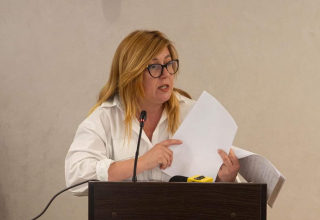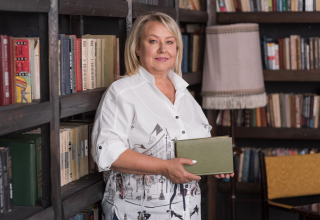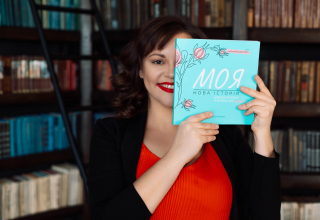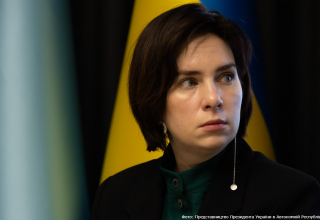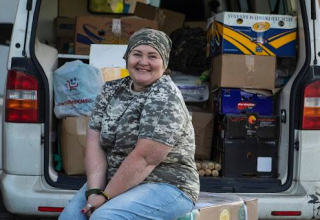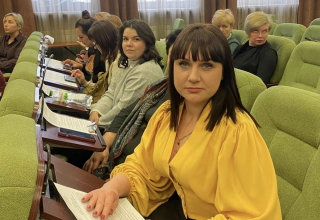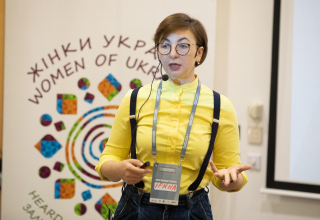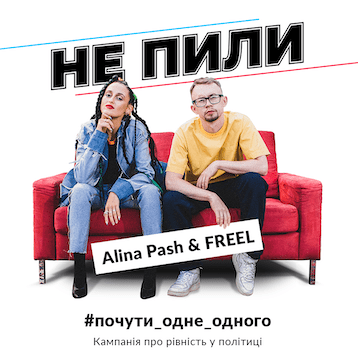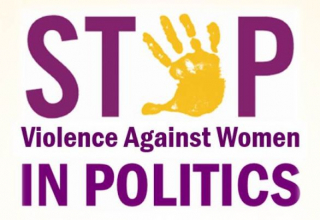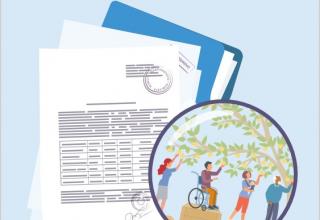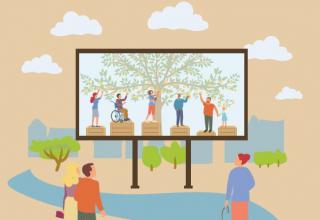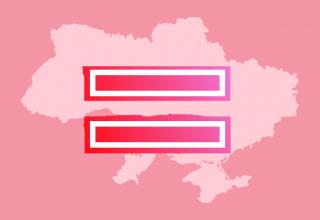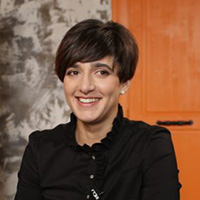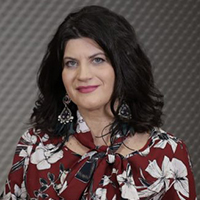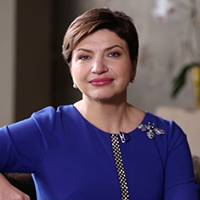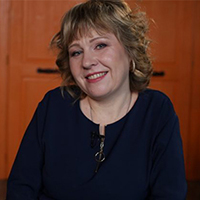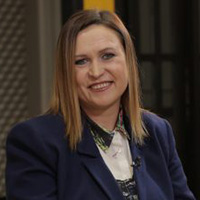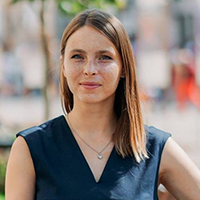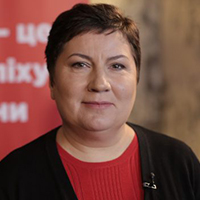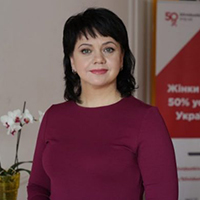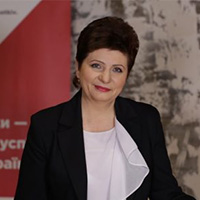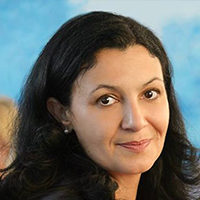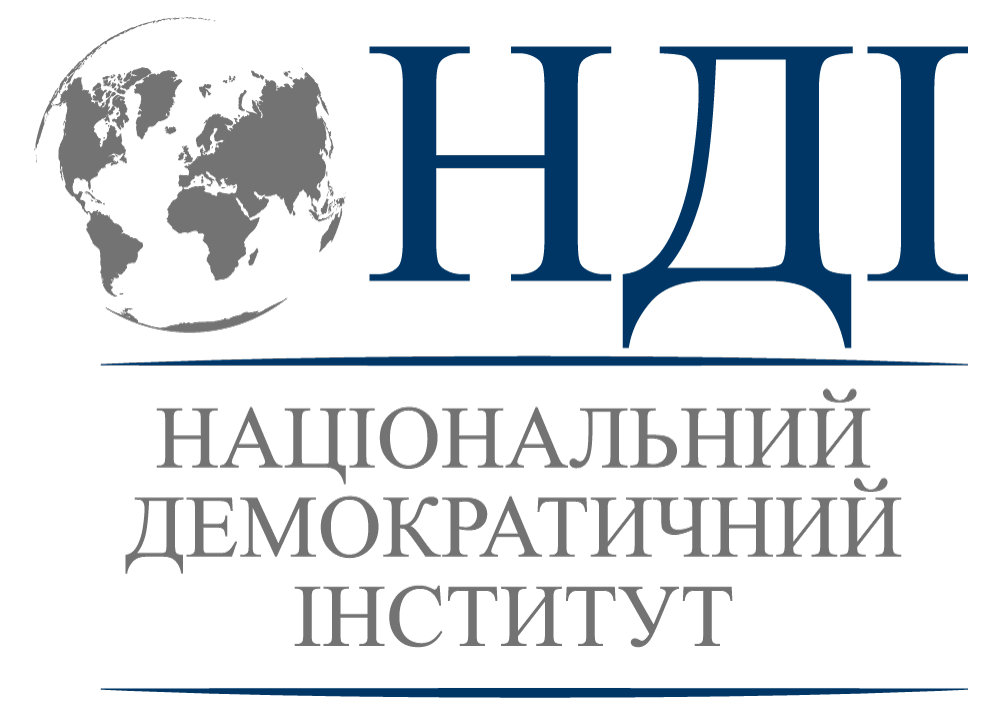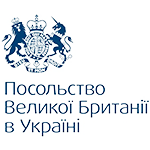Людмила Фіть викладала на кафедрі видавничої справи та редагування у Черкаському національному університеті імені Богдана Хмельницького. Заснувала та очолила молодіжну громадську організацію «Книжковий маестро», команда якої започаткувала регулярні літературні події в Черкасах — зустрічі з письменниками та поетами, презентації — те, чого ніхто не робив раніше в цьому місті у таких масштабах. Врешті ці зустрічі переросли в організацію чотирьох книжкових фестивалів, які відвідували тисячі читачів щороку.
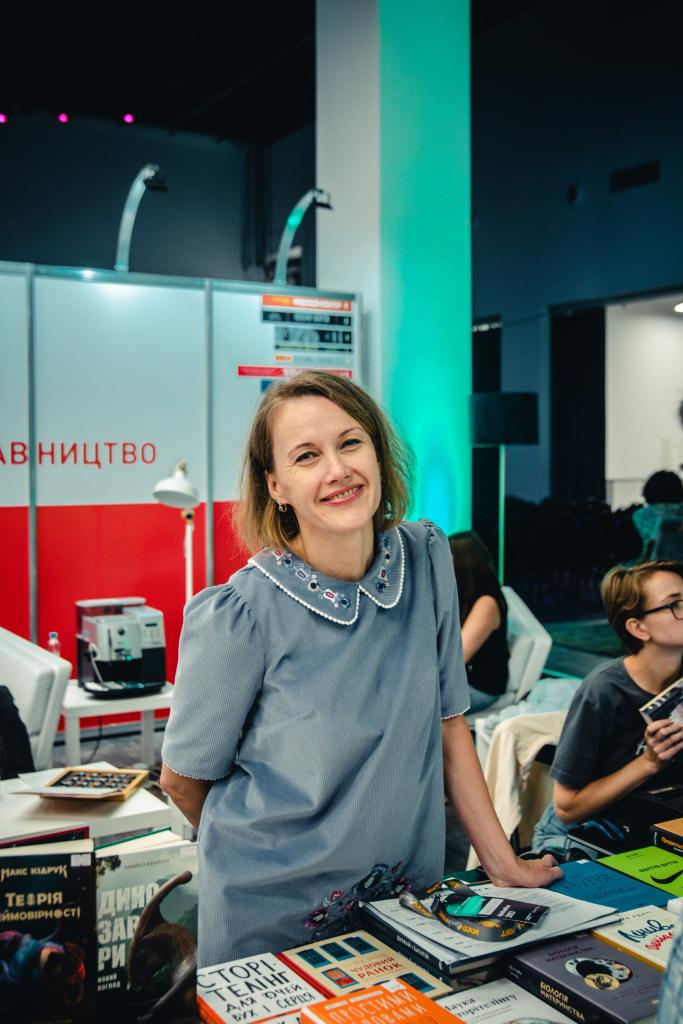
Згодом Людмила Фіть очолювала управління культури Черкаської ОДА. Нині ж працює у галузі книжкового маркетингу в Києві, організовує фестивалі та модерує зустрічі з літераторами й літераторками на всеукраїнському рівні. А в рідних Черкасах в межах волонтерського проєкту разом із командою влаштовує тематичні благодійні екскурсії містом, за які відвідувачі платять донатами для ЗСУ.
Ми поспілкувалися з Людмилою Фіть про роботу в облдержадміністрації, організацію літературних подій та про те, як виставляти кордони і вчитися себе відстоювати.
А почалася наша розмова, коли пані Людмила вийшла з роботи — о восьмій годині вечора.
Ви так багато працюєте…
Нещодавно я зробила два відкриття для себе. Перше — прямо наживо побачила, як ми конструюємо свою реальність. Якщо ви думаєте, що люди всі добрі, ви про них добре думаєте, то в вашій реальності так і є. Навіть якщо вони думають про вас погано, у вашій реальності вони все одно думають про вас добре. І світ ніби стає кращим.
Друге відкриття — про різні покоління. Підозрюю, що своїм швидким і насиченим темпом роботи можу когось напружувати, хоча комусь отака моя інтенсивність і швидкість — ок. Так-от, мені здається, що зараз я не особливо ефективна, але підозрюю, що це мені так здається, а інші люди при цьому вважають, що я багато і продуктивно працюю.
Читайте також на платформі «Повага»: Уривок із книжки «Жінки та влада: маніфест» Мері Берд
На якому етапі вашої кар’єри продуктивність була найвищою — під час викладання на кафедрі видавничої справи в університеті, в період керівництва управлінням культури Черкаської ОДА чи нині — в галузі книжкового маркетингу?
Це питання для мене дуже складне. Бо ти або задоволена результатом, і тоді здається, що це круто і продуктивно. Або незадоволена — і ти думаєш, що могла би зробити більше.
Я, наприклад, розумію, що в університеті могла би робити більше. В управлінні культури — величезна ділянка роботи, і я знала, як їй давати раду. Там точно вдвічі чи втричі більше можна було зробити. Але за умови, якби я там залишилися працювати, а не за той період, протягом якого я там була.
Якщо мати на увазі якісь завершені речі, то, як на мене, найбільше задоволення я отримала від створення Черкаського книжкового фестивалю. Бачила, як наша команда зробила перший, другий, третій фестивалі — і їхній рівень кожного разу зростав. Ми провели також четвертий фестиваль, коли був спад із об’єктивних причин, бо це вже була пандемія. Але саме тут, під час цих фестивалів я бачила, як об’єднуються люди, схожі за інтересами.
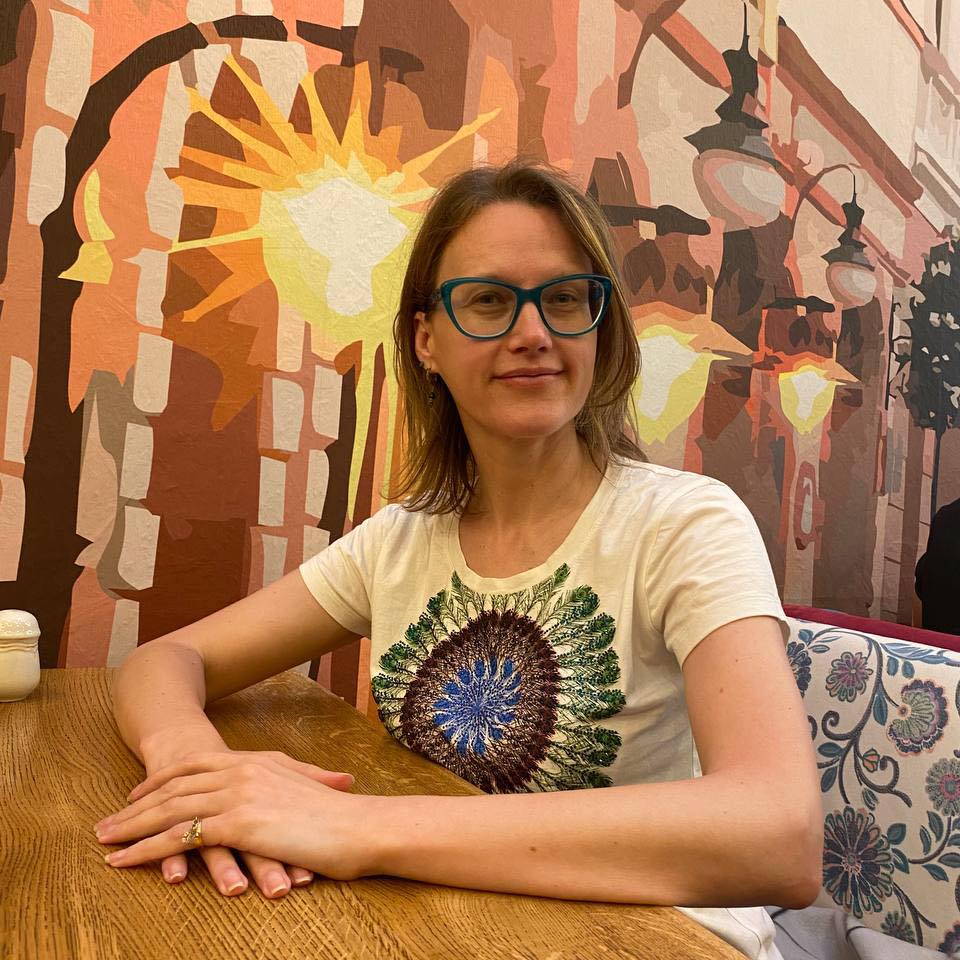
«Поки сама не спробуєш, то не зрозумієш, як воно буде насправді»
Як ви потрапили на посаду керівниці управління культури Черкаської ОДА?
Уперше мене запросили працювати, коли я жила з сім’єю у Львові. Коли про цю пропозицію я сказала чоловікові, він відповів: «Тільки через мій труп, бо ми через тебе всією сім’єю переїхали у Львів, а тепер тебе запрошують у Черкаси». Я відмовилася. Минуло кілька місяців, і до мене знову звернулися з цією ж пропозицією. Тоді вже я сказала чоловікові, що шкодуватиму, якщо відмовлюся від такого шансу бути корисною культурі області і спробувати щось змінити.
Багато з ким спілкувалася з цього приводу. Більшість людей мене відмовляли. Але знаєте, що я зрозуміла? Можна питати поради, але ти — це ти, і поки сама не спробуєш, то не зрозумієш, як воно буде насправді.
Мене запросив тодішній голова обласної державної адміністрації Роман Боднар. Зараз, аналізуючи той короткий період роботи (а я пропрацювала менше року) не можу сказати, що все було добре. Підозрюю, що могла би далі працювати. Але для мене дивною є позиція, що коли ти потрапила в ОДА на посаду якоїсь начальниці, то будеш триматися за цю посаду зубами і всіх ліктями розпихати, щоб там залишитися.
У перші дні після призначення мене питали і напряму, і через когось, хто за мною стоїть. Коли я щиро казала, що за мною ніхто не стоїть, що мене запросили як фахівчиню, яка може ефективно працювати, я бачила, що не всі мені вірять. Пам’ятаю пораду, яку мені дали у міністерстві: «Важливо залишитися людиною після такої посади, а тим більше, якщо за тобою ніхто не стоїть і ти можеш опинитися під ударом в будь-який момент».
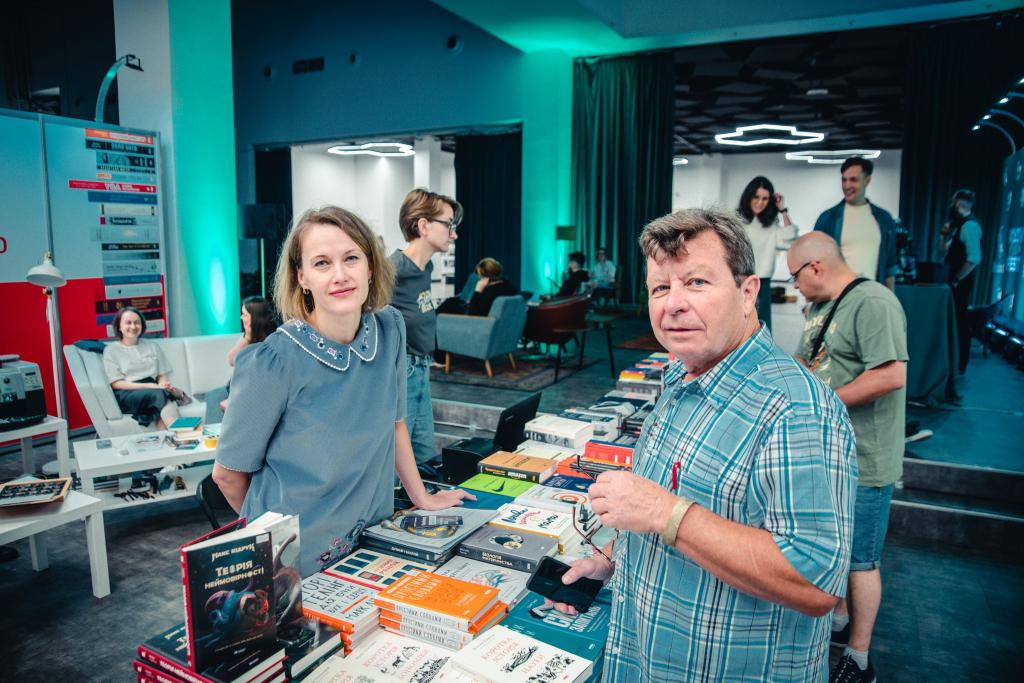
«Команда дуже важлива, вона має так само «горіти» тим, чим і ти»
А чому ви звільнилися?
Так само, як мені не всі вірили, що за мною ніхто не стоїть, так само мало хто вірив, що я звільнилася сама. Багато причин, чому я пішла. Найочевидніша і офіційна — мій чоловік на той момент був у Києві, у мене була вже пропозиція роботи в Києві, тож я апелювала до цього.
Були й неофіційні причини. Як на мене, успішно і якісно можна працювати в чиновницькій структурі, якщо, по-перше, тебе підтримує твоє безпосереднє начальство — голова ОДА. А по-друге, у тебе є команда, яка стоїть за тобою, і яка готова робити всі ті шалені речі, які ти вважаєш за потрібне.
Читайте також: Культурна дипломатія: як жінки просувають бренд України за кордоном
Ситуація тоді така була, що я пропрацювала кілька місяців із паном Романом. І його звільнили. Призначили Сергія Сергійчука, з яким я пропрацювала кілька місяців. І його теж звільнили. Призначили Олександра Скічка. Ситуація, коли ти починаєш, тримаєш курс на одне, але заходить новий голова ОДА, змінюються пріоритети, ти розвертаєшся, починаєш робити інше. Потім заходить третій голова ОДА, і ти розвертаєшся втретє… Як на мене, так не має бути.
Я не з тих людей, які працюють, щоб працювати, ходити на роботу. Для мене архіважливий результат. Я мала своє бачення, як я можу бути корисною в культурі. Але це не завжди збігалося із баченнями голів ОДА, які постійно змінювалися.
Може виникнути враження, що мене не підтримували чи вставляли палиці в колеса. Але ні, такого не було. Просто коли тебе запрошує на посаду одна людина і каже, що вірить в тебе, то це дуже розуміють твої співробітники. Коли змінюється голова ОДА, ти вже не його людина, і ти маєш вкотре доводити йому свою професійність, бо він уже не буде стовідсотково за тебе. І твоя команда теж це відчуває. Команда дуже важлива, вона має так само «горіти» тим, чим і ти. У мене такого не було.
«Навіть якщо ти не оперуєш значними коштами у цій сфері, там все одно є що робити і є чим допомогти»
Чи вдалося вам привести свою команду, своїх людей на роботу в ОДА? Чи там настільки все забюрократизовано, що це неможливо?
Якщо в тебе є оця «підтримка згори», то можливо. Я з паном Романом пропрацювала пару місяців. І далі в кожного голови ОДА були свої пріоритети. Щоб сформувати команду, треба щоб культура була в пріоритеті. Мені вдалося кількох людей завести. Та дуже швидко ця можливість зникла, тож ці люди пішли разом зі мною.
Хто в області ухвалює основні рішення щодо культури? Чи можна сказати, що все замикається на голові ОДА?
У мене було безпосереднє керівництво в Черкасах — голова ОДА, і керівництво в Міністерстві культури. Я мала добре співпрацювати і з тим, і з іншим. Тож не можна прямо сказати, що все вирішує один тільки голова ОДА. Однак запрошує тебе він, і ти працюєш безпосередньо з ним. Але з міністерством ми теж багато працювали. Почався величезний проєкт «Велике будівництво» в культурі. Пам’ятаю ті документи, які ми готували, збирали, як намагалися розібратися, в чиєму підпорядкуванні перебувають певні будівлі… Це все було дуже заплутано, і я розумію, чому. Але якщо мати бажання, усе можна вирішити і розплутати, якщо над цим працювати і бути зацікавленою.
Перед тим, як погодитися на посаду, ви сказали чоловікові, що пошкодуєте, якщо не спробуєте. Не пошкодували, що спробували?
Не пошкодувала. Я розумію можливості цієї посади. Розумію проблему недофінансування галузі. Але навіть якщо ти не оперуєш значними коштами у цій сфері, там все одно є що робити і є чим допомогти людям.
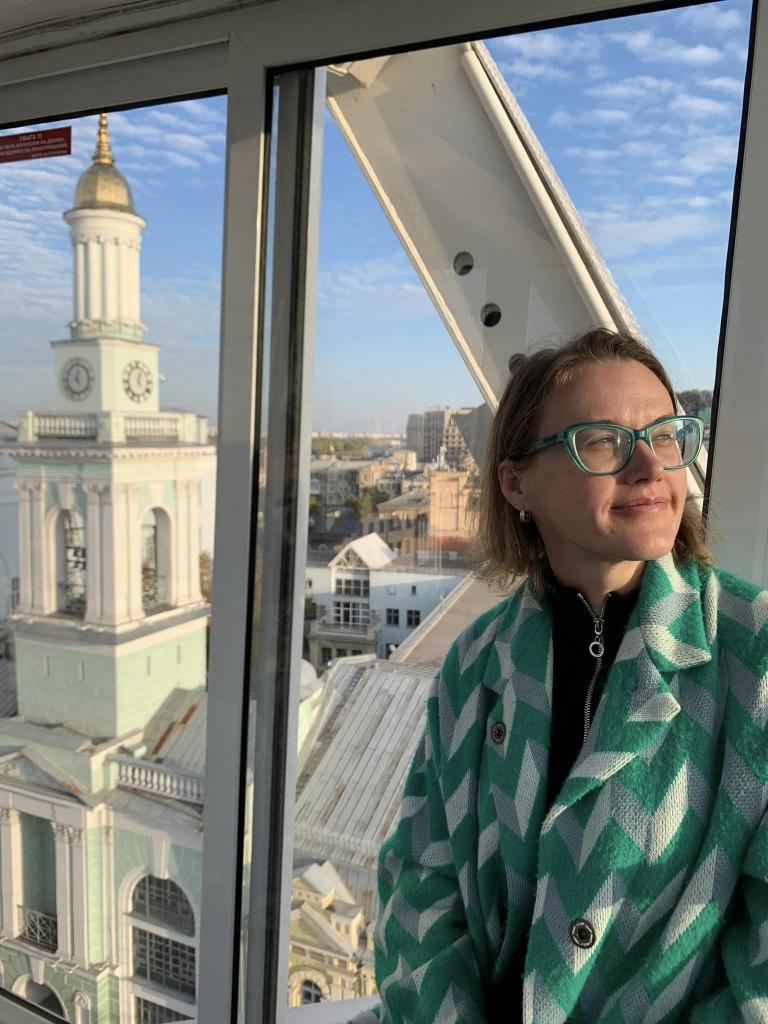
«Людям хочеться вживу слухати тих, кому вони довіряють»
Повернімося до навкололітературного життя. Ви згадали про пандемію, через яку відбулися певні зміни в цій сфері. Після пандемії практично одразу почалося повномасштабне вторгнення. Нещодавно ви працювали над організацією ще одного фестивалю — KyivBookFest. Як за вашими спостереженнями змінилися читацька аудиторія, книжковий ринок?
Не можу порівнювати, як змінилася аудиторія, тому що фестиваль у Черкасах і фестиваль у Києві — це різні рівні і різна моя участь. Якщо в Черкасах фестиваль організовувала моя команда, то в Києві я була частиною команди. Основним ідейником і натхненником був Владислав Кириченко, який взяв на себе всі ризики, пов’язані з фестивалем. На мені хоч і була солідна частина роботи, але я не була головною організаторкою. І це багато про що говорить.
Щодо питання про зміни — після KyivBookFest відбувався також Львівський фестиваль, і на всіх подіях організатори відзначають, що людям хочеться спілкуватися. На KyivBookFest, скажімо, було сім дорослих локацій — на всіх було багато людей. Мабуть, це круто, але вимушено круто.
Читайте також: Коли культура (не) на часі
Люди відвикли від офлайн спілкування?
Людям хочеться спілкуватися з собі подібними, обмінюватися думками, звіряти свої вектори. Хочеться вживу слухати тих, кому вони довіряють.
Ви модеруєте багато літературних подій, спілкуєтеся з тими, про чий автограф мріють тисячі читачів. Це для вас звична справа? Чи вважаєте себе частиною літературної когорти?
Коли я робила круті події в Черкасах, вони були продумані, це були цікаві формати, я запрошувала гостей всеукраїнського рівня. Але це було в Черкасах, і до мене ставилися як до хорошої організаторки, але черкаської організаторки. Коли ж зробила з командою подію в Києві, то відразу відчула інше ставлення — «ого, так вона робить хороші серйозні якісні події великого рівня». Хоча для мене організація цих подій відрізнялася просто кількістю людей, які прийшли, і трохи більшою кількістю самих подій у межах одного фестивалю. У Черкасах 100 подій, у Києві —150. Але після київської події я відчула, що люди мені додають якоїсь ваги. Гріх жалітися.
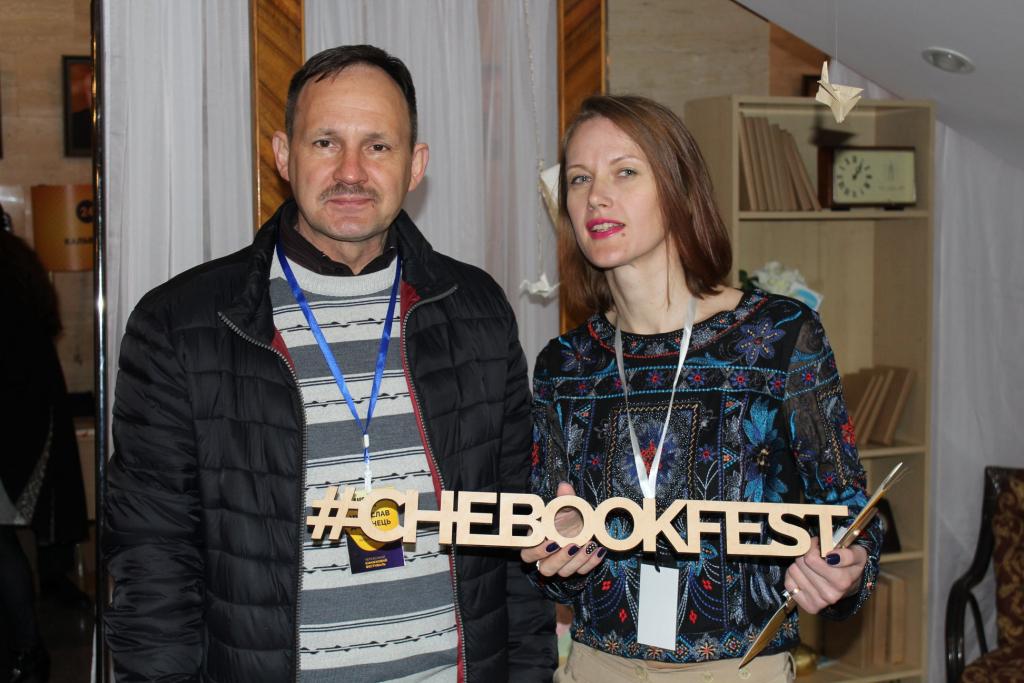
«Якщо ти не навчишся себе відстоювати, місто тебе «зламає»
Більшість вашої роботи — менеджмент, керівництво, організація. Які у вас пріоритети, щоб сформувати команду, яка працює на результат?
Я точно розумію, що команда — це щось таке моє-моє. І постійно наголошую на тому, що пишаюся, що люди, з якими починала, зі мною досі, і ми одне одного запрошуємо в проєкти. Я працювала у видавництві «Наш Формат» у Києві, куди потрапила через Марину, з якою ми працювали на Черкаському книжковому фестивалі. А зараз уже я тягну Марину в свій проєкт. Оце така синергія.
Коли починаю роботу над новим проєктом і запрошую тих людей, з якими працювала в Черкасах, і одна з колег каже: «Якщо ти відчуваєш, що я це потягну, то я з тобою, я це потягну». Це круто. Мені дуже приємно, коли люди говорять: «Я з тобою в проєкті, так, я буду працювати». Люди — це супермегаважливо.
Щодо того, як розставляти пріоритети. Коли я приїхала у Київ, то зрозуміла, що тут ти або чітко розумієш і виставляєш кордони. Або тебе завалять обов’язками, роботою, навантаженнями. Київ чітко говорить: якщо ти не навчишся себе відстоювати, місто тебе «зламає». Я не скажу, що навчилася себе відстоювати, але вже зрозуміла, що треба себе берегти. Коли ти бачиш, що не можеш витримувати натиску, то або витримуй, або йди, не чекай поки тебе винесуть. Або тікай, або тримайся. Інколи я тікала, інколи трималася.
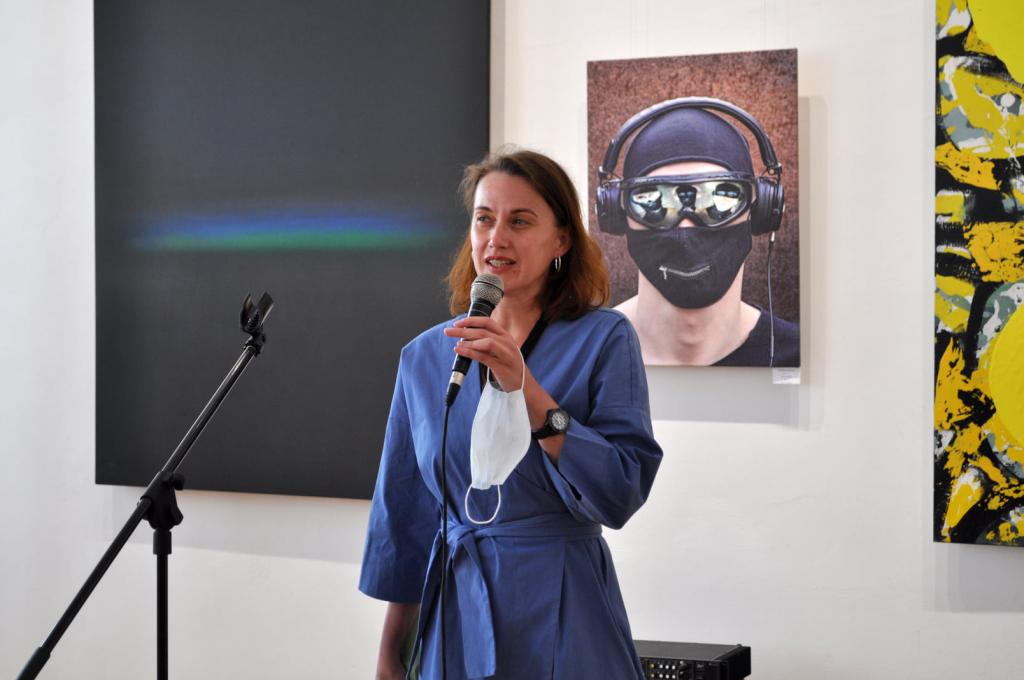
«Ми своєю роботою розширюємо коло людей, які погоджуються на якісь хороші авантюри»
Чи вважаєте ви себе змінотворицею?
Я розумію, що те, що ми робили в Черкасах, було недарма. Ми своєю роботою спонукали людей не стояти на місці, розвиватися.
Коли я працювала в університеті, постійно студентів мотивувала: «Ідіть уперед, не зупиняйтеся, вам треба оце чи це». Згадую першу групу, де була кураторкою, — рвонули просто всі. Якщо бути чесною, то і чоловік теж каже: «Якби не ти, то я б оце ще був на попередній роботі, а так зрозумів, що треба рухатися».
Це не від того, що я така особлива, це просто природа мене такою зробила, що треба постійно кудись іти вперед. І тих людей, які зі мною, кудись підбиваю. А те, що ми своєю роботою розширюємо коло людей, які погоджуються на якісь хороші авантюри, — це дуже круто. Так ми змінюємо світ.
Ваш проєкт благодійних екскурсій у Черкасах — це також про зміни, які може здійснювати кожна людина?
Так, цей проєкт теж відкрив величезну кількість людей, які хочуть дізнаватися щось нове про історію рідного краю. Уже протягом двох років постійно проводимо ці екскурсії, зараз призупинили роботу на зимовий період.
І з одного боку, це люди, які хочуть багато нового дізнаватися. А з іншого — це люди, яким ми даємо можливість розповісти те, чим вони захоплюються. У нас була гостя нашого міста, яка вже зараз поїхала до себе додому. Тетяна Арутюнян. І от коли вона приходила на наші екскурсії, я помітила, що вона мистецтвом захоплювалася. Ми запропонували Тетяні провести лекцію про мистецтво, і я зрозуміла, як для неї важливо українською мовою розповідати про те, що вона любить, у місті, в яке вона приїхала тимчасово погостювати. Ми дали людині оцю впевненість, що вона нам цікава, цікаво те, чим вона займається. І для цієї конкретної людини, і для нас це було дуже круто, бо ми слухали і надихалися її розповідями.
Юлія Фомічова
Liudmyla Fyt: For me, the result is the most important thing
Liudmyla Fyt taught at the Department of Publishing and Editing at the Bohdan Khmelnytsky Cherkasy National University. She founded and headed the youth public organization Book Maestro, whose team launched regular literary events in Cherkasy – meetings with writers and poets, presentations – something that no one had done before in this city on such a scale. Eventually, these meetings grew into the organization of four book festivals attended by thousands of readers every year.
Later, Liudmyla Fyt headed the Department of Culture of the Cherkasy Regional State Administration. Now she works in the field of book marketing in Kyiv, organizing festivals and moderating meetings with writers at the national level. And in her native Cherkasy, as part of a volunteer project, she and her team organize themed charity city tours, for which visitors pay with donations for the Armed Forces of Ukraine.
We talked with Liudmyla Fyt about working at the regional state administration, organizing literary events, and how to set boundaries and learn to defend yourself.
Our conversation began when Lyudmyla got off work at eight o’clock in the evening.
You work so hard…
I have recently made two discoveries for myself. The first was that we really construct our own reality. If you think that people are all good, you think well of them, then in your reality it is so. Even if they think badly of you, in your reality they still think well of you. And the world seems to become a better place.
The second discovery is about different generations. I suspect that with my fast and intense pace of work, I can stress someone out, although for some people my intensity and speed are fine. So, it seems to me that I am not particularly effective now, but I suspect that it seems so to me, while other people think that I work hard and productively.
Read more on the Povaha platform: An excerpt from the book Women and Power: A Manifesto by Mary Bird
At what stage of your career was your productivity the highest: when you were teaching at the Department of Publishing at the university, when you were Head of the Department of Culture at the Cherkasy Regional State Administration, or now – in the field of book marketing?
This question is very difficult for me. Because you’re either satisfied with the result, and then it seems cool and productive. Or you are dissatisfied, and you think that you could have done more.
For example, I realize that I could have done more at the university. The Department of Culture is a huge area of work, and I knew how to handle it. I could have done exactly two or three times more there. But only if I had stayed there to work, not during the period I was there.
If we are talking about some completed things, I think I got the most satisfaction from the creation of the Cherkasy Book Festival. I saw how our team organized the first, second, and third festivals, and their level grew each time. We also held the fourth festival, when there was a recession for objective reasons, because it was already a pandemic. But it was here, during these festivals, that I saw people with similar interests come together.
“Until you try it yourself, you won’t understand what it’s really like”
How did you get to the position of head of the Department of Culture at the Cherkasy Regional State Administration?
I was first invited to work when I was living with my family in Lviv. When I told my husband about this offer, he replied: “Only over my dead body, because we moved to Lviv as a family because of you, and now you are invited to Cherkasy.” I refused. A few months passed, and I was approached again with the same offer. That’s when I told my husband that I would regret it if I refused this chance to be useful to the culture of the region and try to change something.
I talked to many people about this. Most people discouraged me. But you know what I realized? You can ask for advice, but you are you, and until you try it yourself, you will not understand what it will really be like.
I was invited by the then head of the regional state administration, Roman Bodnar. Now, analyzing that short period of work (I worked for less than a year), I cannot say that everything went well. I suspect that I could have continued to work. But for me, it’s a strange attitude that when you get to the RSA as a boss, you must hold on to this position with your teeth and elbow everyone to stay there.
In the first days after my appointment, I was asked both directly and indirectly how is the person “behind me”. When I sincerely said that no one was “behind me”, that I was invited as a specialist who could work effectively, I saw that not everyone believed me. I remember the advice I was given at the ministry: “It is important to remain human after such a position, and even more so if no one is behind you and you can be attacked at any time.”
“The team is very important, they should be as passionate about what you are”
Why did you quit?
Just as not everyone believed me that there was no one “behind me”, few believed that I quit on my own. There are many reasons why I left. The most obvious and official one was that my husband was in Kyiv at the time, and I already had a job offer in Kyiv, so I appealed to that.
There were also unofficial reasons. In my opinion, you can work successfully and efficiently in the bureaucracy if, first, you are supported by your immediate superiors, the head of the regional state administration. And secondly, you have a team behind you that is ready to do all the crazy things you think you need to do.
Read also: Cultural diplomacy: how women promote Ukraine’s brand abroad
The situation was such that I worked with Mr. Roman for several months. And he was fired. Serhiy Serhiychuk was appointed, and I worked with him for several months. He was also fired. Oleksandr Skichko was appointed. It’s a situation where you start, you’re heading for one thing, but a new head of the regional state administration comes in, priorities change, you turn around and start doing something else. Then the third head of the RSA comes in, and you turn around for the third time… I don’t think it should be like that.
I’m not one of those people who work to work, to go to work. For me, the result is the most important thing. I had my own vision of how I could be useful in culture. But this did not always coincide with the visions of the heads of regional state administrations, which were constantly changing.
You might get the impression that I was not supported or that they were putting a spoke in my wheel. But no, this was not the case. It’s just that when one person invites you to the position and says that he believes in you, your employees understand this very well. When the head of the regional state administration changes, you are no longer “his person”, and you have to prove your professionalism to him again, because he will no longer be one hundred percent behind you. And your team feels it too. The team is very important, they have to be as passionate as you are. I didn’t have that.
“Even if you don’t operate with significant funds in this area, there is still something to do and something to help”
Did you manage to bring your team, your people to work in the RSA? Or is everything so bureaucratized there that it is impossible?
If you have this “support from above,” then it is possible. I worked with Mr. Roman for a couple of months. And then each head of the RSA had his own priorities. To form a team, you need to prioritize culture. I managed to get a few people on board. But very quickly this opportunity disappeared, so these people left with me.
Who makes the main decisions about culture in the region? Can we say that everything is up to the head of the regional state administration?
I had a direct supervisor in Cherkasy, the head of the RSA, and a supervisor at the Ministry of Culture. I had to cooperate well with both of them. So I can’t say directly that the head of the RSA alone decides everything. However, he invites you, and you work directly with him. But we also worked a lot with the ministry. A huge project called “Big Construction” in culture has begun. I remember the documents we prepared and collected, how we tried to figure out who was in charge of certain buildings… It was all very confusing, and I understand why. But if you have the will, everything can be solved and untangled if you work on it and are interested.
Before accepting the position, you told your husband that you would regret it if you didn’t try. Did you regret trying?
No, I haven’t. I understand the possibilities of this position. I understand the problem of underfunding the industry. But even if you don’t operate with significant funds in this area, there is still something to do and something to help people.
“People want to listen live to those they trust”
Let’s get back to your literary life. You mentioned the pandemic, which caused some changes in this area. The pandemic was followed almost immediately by a full-scale invasion. You recently worked on organizing another festival, KyivBookFest. How have you observed changes in the readership and the book market?
I can’t compare how the audience has changed, because the festival in Cherkasy and the festival in Kyiv are different levels and my involvement is different. While in Cherkasy the festival was organized by my team, in Kyiv I was part of the team. Vladislav Kirichenko was the main ideologist and inspirer, who took all the risks associated with the festival. Although I had a solid part of the work, I was not the main organizer. And this says a lot.
As for the question of changes, after KyivBookFest, there was also the Lviv Festival, and at all events, the organizers note that people want to communicate. At KyivBookFest, for example, there were seven adult locations, and all of them were full of people. It’s probably cool, but it’s forcedly cool.
Read also: When culture is (out of) date
Have people become accustomed to offline communication?
People want to communicate with their peers, exchange opinions, and check their vectors. They want to listen live to those whom they trust.
You moderate a lot of literary events, communicate with those whose autographs are the dream of thousands of readers. Is this a common thing for you? Do you consider yourself part of a literary cohort?
When I organized cool events in Cherkasy, they were thought out, they were interesting formats, and I invited guests of the national level. But it was in Cherkasy, and I was treated as a good organizer, but a Cherkasy organizer. When I organized an event in Kyiv with my team, I immediately felt a different attitude – “wow, she does good, serious, high-quality events of a high level.” Although for me, the organization of these events differed simply in the number of people who came, and in the slightly larger number of events within one festival. There were 100 events in Cherkasy, 150 in Kyiv. But after the Kyiv event, I felt that people added some weight to me. It’s a sin to complain.
“If you don’t learn to stand up for yourself, the city will break you”
Most of your work is management, leadership and organization. What are your priorities to build a team that works for results?
I understand for sure that a team is something that is very mine. I constantly emphasize that I am proud that the people I started with are still with me, and we invite each other to projects. I worked at the Nash Format publishing house in Kyiv, I got there through Maryna, with whom I worked at the Cherkasy Book Festival. And now I’m inviting Maryna to my project. This is the synergy.
When I begin working on a new project and invite the people I worked with in Cherkasy, one of my colleagues says: “If you feel that I can pull it off, then I’m with you, I can pull it off.” It’s cool. I am very pleased when people say: “I’m with you on the project, yes, I’ll work.” People are super important.
As for how to prioritize. When I came to Kyiv, I realized that here you either clearly understand and set boundaries. Or you’ll be overwhelmed with responsibilities, work, and workload. Kyiv clearly says that if you don’t learn to defend yourself, the city will “break” you. I can’t say that I’ve learned to stand up for myself, but I’ve already realized that I need to take care of myself. When you see that you can’t withstand the pressure, either withstand it or leave, don’t wait until you are carried away. Either run away or hold on. Sometimes I ran away, sometimes I held on.
“Through our work, we are expanding the circle of people who agree to take good adventures”
Do you consider yourself a change maker?
I realize that what we did in Cherkasy was not in vain. With our work, we encouraged people not to stand still, to develop.
When I worked at the university, I was constantly motivating students: “Go ahead, don’t stop, you need this or that.” I remember the first group where I was a curator, and everyone was eager to go. To be honest, my husband said the same thing: “If it weren’t for you, I would still be at my previous job, but I realized that I had to move.”
It’s not because I’m so special, it’s just my nature that made me such that I have to constantly move forward. And I push those people who are with me to go somewhere. And the fact that we are expanding the circle of people who agree to some good adventures through our work is very cool. This is how we change the world.
Is your project of charity tours in Cherkasy also about the changes that everyone can make?
Yes, this project has also opened up a huge number of people who want to learn something new about the history of their native land. We’ve been organizing these tours for two years now, but we’ve suspended them for the winter.
On the one hand, these are people who want to learn a lot of new things. And on the other hand, these are people to whom we give the opportunity to tell what they are passionate about. We had a guest from our city who has already left for home. Tatiana Harutyunyan. And when she came to our tours, I noticed that she was fond of art. We offered Tatiana to give a lecture about art, and I realized how important it was for her to talk about what she loved in Ukrainian in the city she came to visit temporarily. We gave the person this confidence that we are interested in her, that we are interested in what she does. It was very cool for this particular person and for us, because we listened and were inspired by her stories.
Yulia Fomichova


